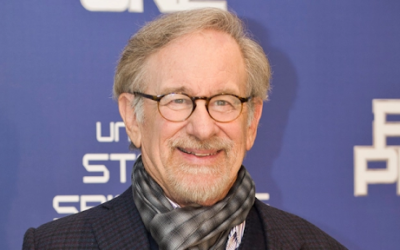Source: Variety
There are few actors working in the modern-day film industry that have maintained such a favorable reputation over the course of several decades quite like Tom Hanks, to a point where many have begun to refer to him as this generation’s Jimmy Stewart (as both actors have been known for their humbling screen personas and their ability to shine in both comedy and drama films). Since receiving the first major starring role of his cinematic career with the 1984 fantasy comedy “Splash”, Hanks has worked steadily as an actor for almost four decades, appearing in well over a hundred films and most recently playing the kind fatherly figure Gepetto in Disney’s live-action remake of “Pinocchio”. In spite of this successful career though, Hanks himself has maintained a rather modest stance when looking back on his filmography, so much so that he has (perhaps somewhat jokingly) claimed to have made only a small handful of films he considers to be “pretty good”.
In a recent interview with People Magazine, one in which he promotes his first novel “The Making of a Major Motion Picture Masterpiece” (set to be released on May 9th, 2023), Hanks discusses the long, tedious process that often goes into the production of a motion picture, and how that process has changed dramatically over the artform’s decades-long history. “No one knows how a movie is made — though everyone thinks they do,” Hanks tells People. “I’ve made a ton of movies (and four of them are pretty good, I think) and I’m still amazed at how films come together. From a flicker of an idea to the flickering image on screen, the whole process is a miracle.” Hanks’ statement, as presented in the article, is clearly focused less on a specific film and more on how films in general are made, yet it’s his comment on how he supposedly believes he’s only made four “pretty good” films that has caught much of the public’s attention, largely due to how he does not bring up any specific films in this statement. Granted, given the context, Hanks was probably not being too serious when saying any of this, but nonetheless, it has sparked much debate about which films Hanks could possibly be referring to. In the time since the article’s publishing, Hanks has yet to directly identify any of the past films he’s made that he considers best, leaving the rest of the world guessing as to what they could be.
Among the most popular guesses as to which films Hanks favors most are the ones that have garnered him an Academy Award or at least a nomination for the award. As of this writing, Hanks has earned two Academy Awards for Best Actor in a Leading Role, which he won back to back in 1993 for the film “Philadelphia” and in 1994 for “Forrest Gump” (making him one of the few actors to win the award in two consecutive years). In addition, he has received three additional Best Actor nominations for 1988’s “Big”, 1998’s “Saving Private Ryan”, and 2000’s “Cast Away”, as well as a Best Supporting Actor nomination for the 2019 film “A Beautiful Day in the Neighborhood.”
Others have looked to the works of certain directors in order to deduce which of the ones Hanks appeared in are among those he had in mind when claiming to have only made four “pretty good” films. Of the filmmakers Hanks has collaborated with most, Steven Spielberg has proven to be not only the most well-known, but also the one who has allowed Hanks to act in some of his most iconic roles. As of 2022, Hanks and Spielberg have made five films together: the aforementioned “Saving Private Ryan”, 2002’s “Catch Me If You Can”, 2004’s “The Terminal”, 2015’s “Bridge of Spies”, and 2017’s “The Post”. In addition, the two have also collaborated on the 2001 HBO miniseries ”Band of Brothers” and the 2010 miniseries “The Pacific”, the latter of which gave Hanks his first simultaneous directing, producing, and screenwriting credits. Robert Zemeckis is another director with whom Hanks has made several films; their most recent work is the previously mentioned “Pinocchio” remake, and before hand, Zemeckis had directed Hanks in his Oscar-winning performance in “Forrest Gump” as well as “Cast Away” and the 2004 animated holiday film “The Polar Express”, which allowed Hanks to act in multiple roles through its use of motion capture technology.
Nowadays, people perhaps know Hanks best as a dramatic actor, largely due to the great number of critically acclaimed dramas he has starred in. On top of all the films previously discussed, Hanks has garnered overwhelming praise for such films as the 1995 docudrama “Apollo 13”, the 2002 period crime drama “Road to Perdition”, and the 2013 biopic “Saving Mr. Banks”, in which he played entertainment icon Walt Disney. However, as impressive as Hanks’ dramatic performances may be (and there are certainly several examples to choose from that prove this), he has also managed to demonstrate his comedic talents on multiple occasions. In fact, early on in his career, comedy was perhaps the genre Hanks was best known for, breaking out in such films as “Splash” and “Big” and later on starring in romantic comedies like 1993’s “Sleepless in Seattle” and 1998’s “You’ve Got Mail”. The 1992 baseball film “A League of Their Own” also provides some of Hanks’ best comedic material, but perhaps Hanks’ best-known role for comedy (and perhaps drama to a certain extent) is one is not actually seen, but rather heard: the cowboy doll Sheriff Woody of the “Toy Story” films, a four-picture series that saw its most recent installment with the 2019 Academy Award winner “Toy Story 4”.
With so many films to choose from, it’s not difficult to understand why people are having a hard time narrowing Hanks’ filmography to just four films. However, if looking back at Hanks’ career has taught anything, it’s that none of this discussion really matters in the long run. If anything, Hanks seems less interested in looking back at his career and is mostly eager to look forward to what he will be a part of next, finding the process of making a film far more enjoyable and rewarding (if frustrating at times) than the finished film itself. “Movie-making is very hard work over a very long period of time that consists of so many moments of joy slapped up against an equal number of feelings of self-loathing,” Hanks claims. “It is the greatest job in the world and the most confounding of labors that I know of.”




